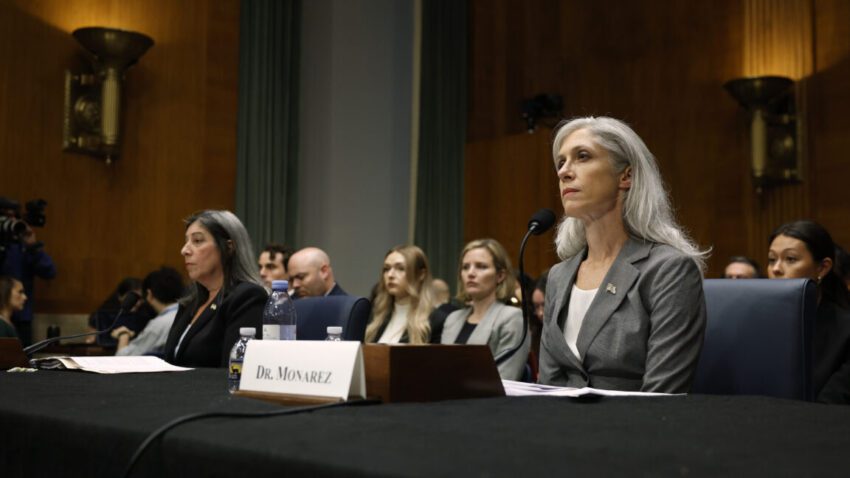
rfk jr s anti-vaccine delusions-not science-steer cdc Former CDC officials have raised serious concerns about the leadership of Health Secretary Robert F. Kennedy Jr., alleging that his anti-vaccine stance is undermining the agency’s scientific integrity.
rfk jr s anti-vaccine delusions-not science-steer cdc
Testimony Before the Senate Committee
On Wednesday, the Senate Committee on Health, Education, Labor, and Pensions (HELP) convened to hear from former officials of the Centers for Disease Control and Prevention (CDC) regarding the agency’s current state under Kennedy’s leadership. Among those testifying was Susan Monarez, who briefly served as the CDC’s director before her ousting last month. Monarez’s testimony, along with that of Debra Houry, the former chief medical officer for the CDC, painted a troubling picture of the agency’s operations and decision-making processes.
Background on Susan Monarez
Susan Monarez, a microbiologist with extensive experience in public health, was appointed as the first Senate-confirmed director of the CDC. Her tenure, however, was short-lived, lasting only 29 days. Monarez’s abrupt dismissal has raised eyebrows, particularly given the context of her testimony. She claimed that her firing was a direct result of her refusal to comply with Kennedy’s demands, which she characterized as politically motivated and lacking scientific justification.
Concerns Over Vaccine Recommendations
During her testimony, Monarez revealed that Kennedy had pressured her to pre-approve changes to the CDC’s childhood vaccine recommendations, regardless of the scientific evidence supporting such changes. This demand raised alarms among public health experts, as it suggested a shift away from evidence-based practices that have long been the cornerstone of the CDC’s mission. Monarez stated, “I could not in good conscience agree to changes that were not based on sound science.” This sentiment underscores the tension between political influence and scientific integrity within the agency.
Debra Houry’s Resignation
Debra Houry, who served at the CDC for a decade across multiple administrations, also provided testimony that echoed Monarez’s concerns. Houry resigned shortly after Monarez’s ouster, citing a toxic environment that stifled scientific discourse. She described Kennedy’s leadership as one that “censored science,” claiming that he frequently disregarded the expertise of CDC scientists and staff. “It became increasingly clear that the agency was being steered by ideology rather than evidence,” Houry stated during her testimony.
The Impact of Leadership Changes
The rapid turnover in leadership at the CDC has raised questions about the agency’s ability to effectively respond to public health challenges. Under Kennedy’s leadership, there is a growing fear that the CDC may prioritize political agendas over scientific recommendations. This shift could have dire consequences, particularly in the realm of childhood vaccinations, which have historically been a critical component of public health strategy in the United States.
Implications for Public Health
The implications of Kennedy’s leadership extend beyond the CDC itself. The agency plays a pivotal role in shaping public health policy and guiding vaccination programs across the nation. If the CDC’s recommendations become increasingly influenced by anti-vaccine rhetoric, it could lead to a decline in vaccination rates, resulting in outbreaks of preventable diseases. Experts warn that such a scenario could reverse decades of progress in controlling infectious diseases.
Stakeholder Reactions
The testimony from Monarez and Houry has drawn reactions from various stakeholders in the public health community. Many health professionals have expressed alarm over the potential erosion of scientific integrity within the CDC. Dr. Anthony Fauci, the former director of the National Institute of Allergy and Infectious Diseases, commented, “The CDC has always been a beacon of science-based public health policy. Any deviation from that could have catastrophic consequences.” His remarks highlight the consensus among public health experts regarding the importance of maintaining a strong, science-driven CDC.
Public Perception and Misinformation
In addition to the internal challenges facing the CDC, there is also the issue of public perception. The rise of misinformation surrounding vaccines has created a climate of distrust among some segments of the population. Kennedy’s anti-vaccine stance has gained traction among certain groups, further complicating efforts to promote vaccination. Public health campaigns aimed at educating the public about the safety and efficacy of vaccines are now more critical than ever.
Future of the CDC Under Kennedy
The future of the CDC under Kennedy’s leadership remains uncertain. As the agency grapples with internal dissent and external pressures, the potential for a shift in public health policy looms large. The Senate HELP Committee’s hearing serves as a critical moment for the CDC, as lawmakers seek to understand the implications of Kennedy’s leadership on the agency’s mission and public health outcomes.
Calls for Accountability
In light of the testimony, there are growing calls for accountability within the CDC. Lawmakers and public health advocates are urging the Biden administration to take a closer look at the agency’s operations and ensure that scientific integrity is upheld. Some have suggested that an independent review of the CDC’s leadership and decision-making processes may be necessary to restore public trust in the agency.
Conclusion
The testimony from former CDC officials Susan Monarez and Debra Houry raises significant concerns about the direction of the agency under Robert F. Kennedy Jr.’s leadership. Their accounts of political interference and the suppression of scientific discourse underscore the challenges facing the CDC as it navigates a complex public health landscape. As the agency confronts these issues, the importance of maintaining a commitment to evidence-based practices has never been more critical.
In a time when public trust in health institutions is paramount, the CDC must reaffirm its dedication to science and transparency. The consequences of failing to do so could reverberate throughout the public health system, affecting vaccination rates and ultimately the health of the nation.
Source: Original report
Was this helpful?
Last Modified: September 18, 2025 at 3:35 am
0 views















